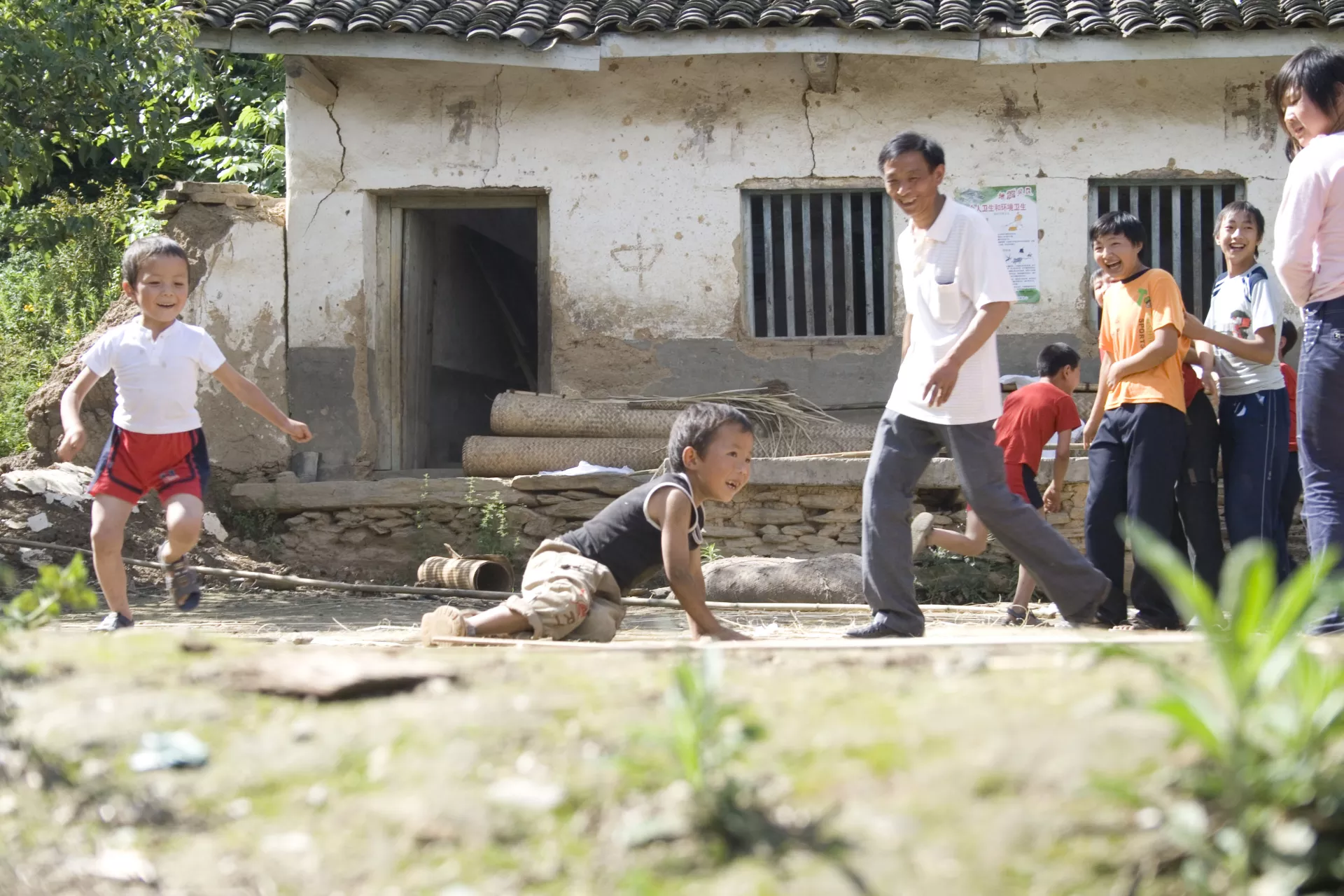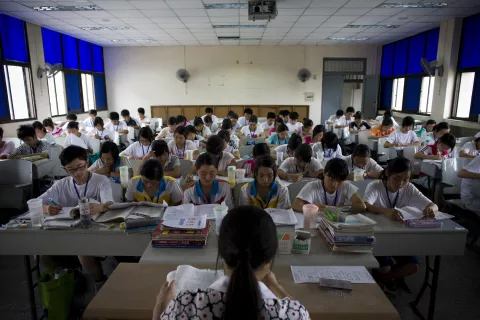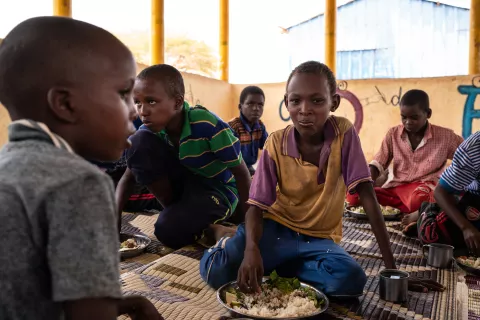Remote Quake Zones, the Most Vulnerable Children
Remote Quake Zones, the Most Vulnerable Children

Pointing at his collapsed school, Mr. Guo Qingyi, principal of Guojiashan Primary School said half jokingly: "This used to be our 'prison' school." The May 12th earthquake caved in the roof and toppled the walls of classrooms that were built in the 1960's with mud and wood. Even on sunny days, little sunshine passed through the small window into the classroom – like a prison cell.
No child hurt
"But the luckiest thing is that no child was killed or injured," Guo smiled. Guojiashan village sits halfway up a mountain adjacent to the Bailongjiang River in Bikou Town, Longnan prefecture, the area in Gansu Province worst-hit by the earthquake. The town is about 100 km away from the epicenter Wenchuan of Sichuan province.
It takes hours to cross the Bailongjiang River by ferry boat and another half hour's drive on a bumpy and winding mountain road to reach the Guojiashan village. The rainy season has come, making the road slippery and loosening boulders that can fall down at any minute. Local people say that there are over 100 aftershocks every day in the area.
The earthquake measured 7.5 on the Richter scale in Longnan prefecture, the most powerful and destructive in 129 years. The prefecture has 195 towns and 3,273 villages that are scattered throughout the hard-to-access mountains, with a population of 1.73 million affected by the earthquake. All of their mud-and-wood-structured houses have collapsed. So far, 326 people were killed, accounting for 90% of provincial casualty casualties.
Gansu is one of the poorest provinces in china, with a population of 4.5 million under poverty line, about 17.4% of the whole population.
Equal education for the remote
The students from this village have now their study in two 12 sqm tents provided by the government. "When the earthquake came, I thought it must be someone pushing me." A student said. "The teachers ask us to come outside to the playground."
The students were wearing the same style of T-shirts with designs of the well known Olympic mascots. The clothes were offered by volunteers who came from all parts of China to help the people in remote villages. Relief supplies are yet to reach them in significant quantities.
When asked why the principal remembered every name of the people who brought help for his students, he said he wanted his students to appreciate the kindness of people.
"I want nothing more than that our school could be the same as any other schools down the mountain (before the earthquake)." Guo said. "The doors and windows of classroom are strong enough and the students can study in a safe and well-lit classroom."
"It would be better if we could have a library." He added. "Our children have nothing to read except their textbooks."
Wolves, landslides, water and poverty
"We are worried for our children because there is a rumour that wolves have once again appeared near the villages following the earthquake. We don't know when the earthquake will be over," the principal said.
Pointing at the mountain top, Villager Guo Quanxing said, "If the rain continues, it may also cause landslides that could devastate the whole village."
According to Ms Yang Xuehong, chair of the All China Women's Federation of Wen County, the villagers found signs of many wolves, and it is believed one person and an ox were killed by the wild animals. She said finally now the wolves seem to have returned to the mountains. The volunteers who camped in the mountain also said they heard the howling of wolves at night. The story has not been confirmed.
Another problem with the region is the lack of clean water in mountain areas. The villagers can only drink surface water which comes down from the mountain top. The same water source is shared by domestic animals and many other communities up-stream.
There was no hospital or clinic in their village. When their children got sick, the parents had to carry the children on foot down the mountain, wait for the ferry boat to cross the river (some times they have to wait for hours), and then walk to a small county on the border with Sichuan province to get medical help.
The village mainly relies on farming. They still use farm cattle and to provide for their needs. The average annual income per household is about RMB2000, or USD 291. After the earthquake, the villagers dare not go to the field as they are afraid of reoccurring aftershocks and landslides.
Now, two families share a single 12 sqm tent. The tent is too hot to stay inside during the day. The villagers have to stay outside till midnight when the temperature falls. Food, water and other basic necessities have yet to arrive.
Smile of hope
Few outsiders have visited the village except a number of young volunteers. The despairing atmosphere soon dissolved when the student started to play games in the playground. With parents looking on, the children played a game of chicken and hunt-the-thimble.
"This is the first time our people and children were able to smile after the earthquake." A woman said.





